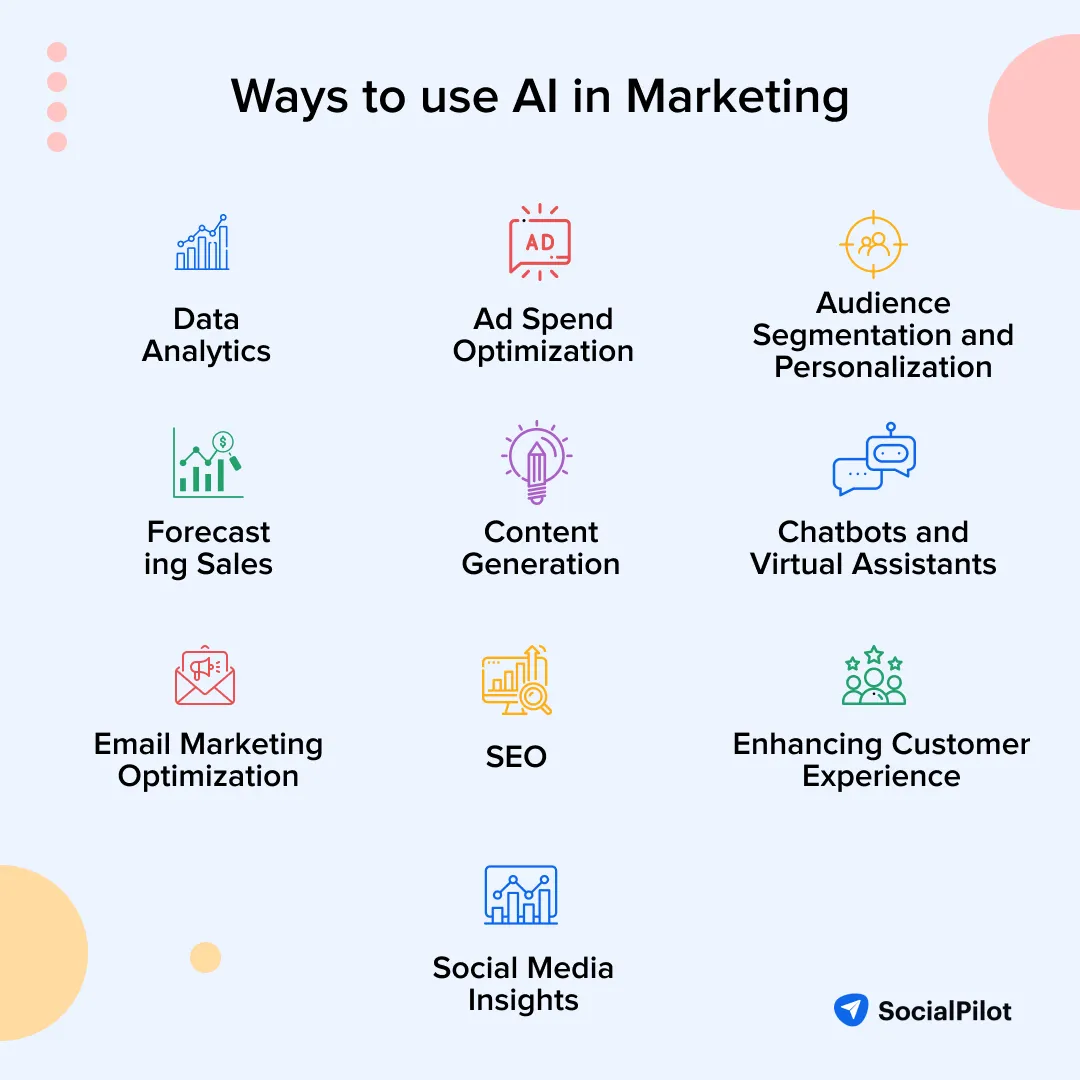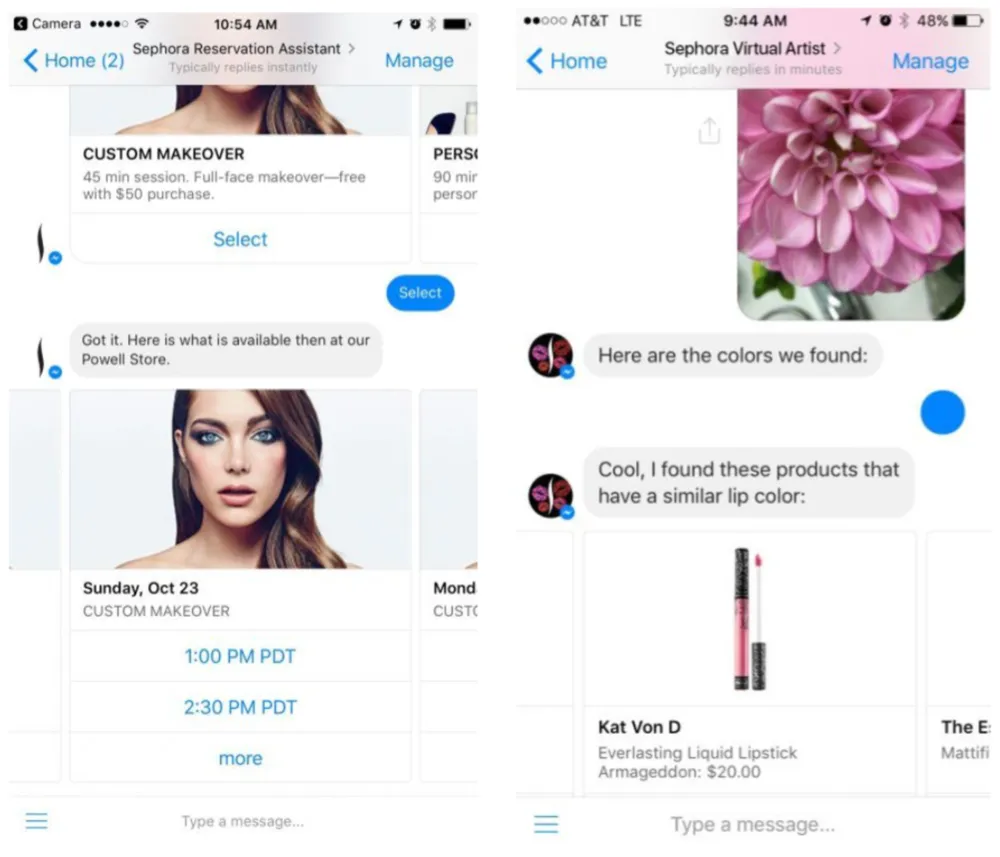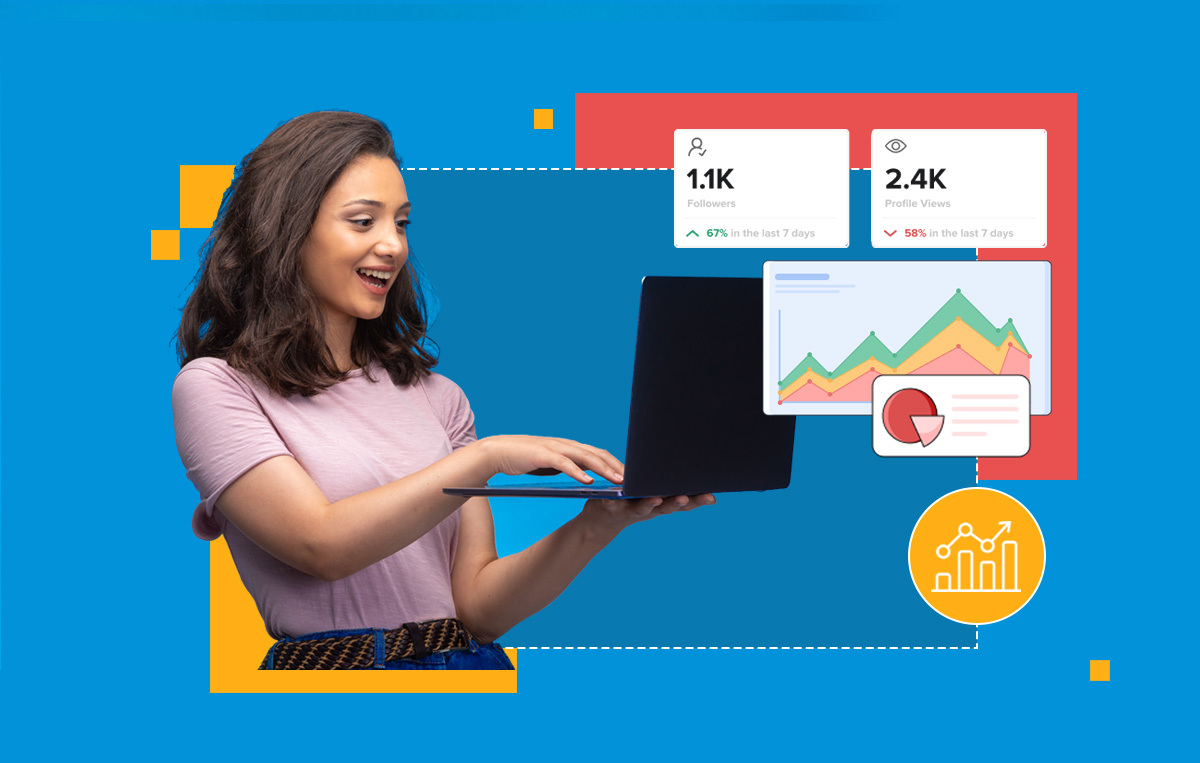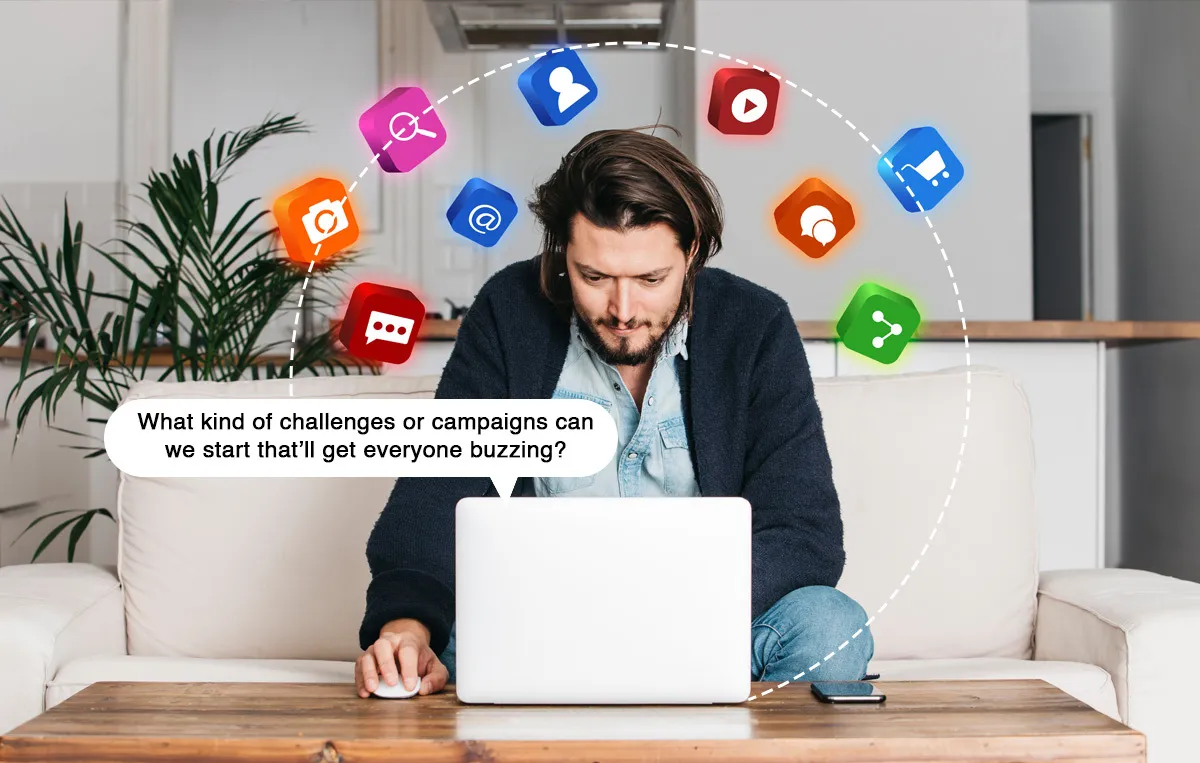“Artificial intelligence is not a substitute for human intelligence; it is a tool to amplify human creativity and ingenuity.” – Fei-Fei Li, Co-Director of the Stanford Institute for Human-Centered Artificial Intelligence.
Most people who are not well versed in Artificial Intelligence see it as a potential threat to human jobs, but this statement from Fei-Fei Li does not advocate for the replacement. Instead, it highlights the collaborative potential of humans and AI.
When we talk about AI in marketing terms, it means AI can enhance the work of marketers by providing insights and automating tasks, allowing for more creativity and personalized customer engagement.
Simply put, this duo of human creativity and AI’s capabilities offers marketers a powerful tool to innovate, improve their strategies, and build genuine connections.
But there’s more to AI marketing than just the strategies and the tools.
Discover how you can use AI to scale up your marketing game, its pros and cons, and popular examples.
What is AI Marketing?
AI marketing or artificial intelligence marketing refers to using AI models to improve marketing strategies and campaigns.
Generative AI can analyze large amounts of data to identify patterns, predict consumer behavior, personalize content, optimize ad placements, and automate email marketing and customer service tasks.

By leveraging AI, marketers can make data-driven decisions, improve customer experience, and ultimately increase ROI.
How is Artificial Intelligence Used In Marketing – The Use Cases
Imagine you’re browsing your favorite online store for a new pair of sneakers. Suddenly, you start seeing personalized recommendations for sneakers that exactly match your style and previous purchases.
This isn’t magic; it’s AI marketing at work. By analyzing your past behavior, preferences, and even the time you spend on certain pages, the store’s AI system can predict what you might like next, making your shopping experience both seamless and enjoyable.
It’s like having a personal shopper who knows you well, but it’s actually sophisticated algorithms crunching data to serve you better.
According to a report from McKinsey, 14% of business leaders regularly use generative AI in their marketing and sales activities. Also, 88% of marketers believe they must use automation and AI to meet their customers’ expectations and stay competitive.
AI has already started the transformation journey and has left its mark in marketing.

But how exactly are marketers using AI?
Let’s take a closer look at some of the applications of AI in marketing:
1. Data Analytics
Data analytics is the most promising use case of AI in marketing. Marketing is a data-driven activity, and AI makes it easy to analyze large sets of data to identify trends, behaviors, and patterns to make informed decisions.
AI can predict the outcome of marketing campaigns through historical data like consumer engagement metrics, purchase history, email open rates, on-page time, and more.
This can help you better strategize your marketing campaigns and develop assets.
2. Ad Spend Optimization
When it comes to Ad spend optimization, AI can help you find waste in your budgets in real-time and optimize your ad spending. Imagine if you could increase the efficiency of your Facebook or Google Ads by 10, 20, or 30%. Wouldn’t it be great?
AI can be a financial advisor, meticulously analyzing which ads are performing and why. By understanding the ROI of each campaign, AI can reallocate your budget to maximize return on ad spend (ROAS) and achieve marking goals more efficiently.
For instance, we use AI to help understand which target group is converting more, and based on it, we reallocate our budget to target more of these users. Also, with AI integrated with Google Ads and other tools, you get actionable insights on your Ad copies and use them to generate copies that can better serve the audience’s intent.
Pro Tip: Regularly review AI-generated reports on ad performance. Based on these insights, look for real-time opportunities to adjust your spending to ensure your budget always targets the highest-performing channels.
3. Audience Segmentation and Personalization
AI helps businesses segment their audience based on behavior, preferences, and demographics to deliver highly personalized marketing messages and improve ROI. This is like having a bespoke tailor for each customer, ensuring they only see what suits them best.
4. Forecasting Sales
Imagine if you could predict the outcome of your marketing campaigns and forecast your sales.
Wouldn’t it be an amazing power to have?
With AI, marketers can analyze historical data and market conditions to predict future sales trends, helping you make proactive decisions about your inventory, staffing, and marketing strategies.
5. Content Generation
Content generation: the most common use case of AI in marketing.
AI in content generation streamlines the creation of articles, blogs, email newsletters, and media by analyzing data and trends to produce relevant content. It’s like having a brainstorming partner that never runs out of ideas.
With access to the internet and information at its disposal, AI can generate insightful content, optimized for SEO and, importantly, personalized to your target audience.
Though generative AI tools like ChatGPT and Gemini make the content generation task pretty fast, they are not ready to publish. An experienced marketer who knows the industry is required to go through the content and fact-check it.
SocialPilot has an in-built AI assistant that lets marketers create content ideas and write impactful email subject lines, social media posts, or hashtags for them within a fraction of a time.
The AI assistant is designed to give you customizable responses to your prompts, and you can select the templates and voice of tone to make it even more personalized for the platform.
6. Chatbots and Virtual Assistants
AI-powered chatbots and virtual assistants can handle customer inquiries without breaking a sweat, providing instant responses and freeing up your human team to tackle more complex issues.
Clinicians, therapists, and researchers are increasingly acknowledging the potential of artificial intelligence (AI) as a potent tool in providing mental health care.
Can AI-powered chatbots enhance access to care and combat stigma?https://t.co/oEueh6tWKG
— The New Times (Rwanda) (@NewTimesRwanda) February 21, 2024
Built with NLP, these tools can answer customer problems quickly, nurture leads, answer repeated questions, and more.
7. Email Marketing Optimization
Email Marketing Optimization with AI involves using algorithms to analyze subscriber behavior, preferences, and engagement patterns to personalize email content, timing, and frequency.
AI can predict the best times to send emails to maximize open rates, segment audiences more accurately, and test different subject lines or content styles to see what resonates most.
By automating these processes, marketers can achieve higher engagement, improved conversion rates, and a better overall ROI from their email campaigns. AI takes the guesswork out of email marketing, making it more effective and efficient.
8. SEO
SEO trends keep on changing, and keeping up with them can be challenging for some, especially when you’re new to them. AI lets marketers and businesses refine their SEO by analyzing search trends, optimizing content, and enhancing user experience.
Marketers use AI tools for keyword discovery, finding SEO gaps, optimizing site navigation, learning about audience preferences, and generating content that meets the search intent.
That’s not even the end; marketers use AI to analyze competitors and get actionable suggestions to act upon.
Wait, you want to do that as well??
Try these 50 AI prompt examples to maximize your marketing returns.
9. Enhancing Customer Experience
Marketing is not just about promoting products or services; it’s about creating meaningful interactions that engage customers at every touchpoint of their journey. Marketers use AI to offer their customers a positive experience, fostering brand loyalty and propelling brand reputation.
AI helps marketers with customer retention, loyalty, offering personalized content, and more.
10. Social Media Insights
Marketers use AI in social media to understand audience sentiment, predict trends, and segment users for targeted marketing. By segmenting audiences based on behavior and preferences, AI facilitates marketers with highly personalized campaigns.
Researchers at SDSU created an AI model called ALERTA-net to predict stock trends.
The model combines data from macroeconomics, social media, and search engine data.
Surpassing key benchmarks in accuracy, the tool shows AI's potential to decode complex datasets. pic.twitter.com/TXQUiykmsO
— Rowan Cheung (@rowancheung) November 22, 2023
AI can break down larger data sets into small actionable insights and filter out the noise. Marketers use AI for social media listening and monitoring and, based on the results, prepare a plan that impacts a broader audience.
Types of AI Marketing Solutions
AI marketing solutions can be broadly categorized into several types, each serving distinct functions within the marketing ecosystem:
Machine Learning
At the heart of AI marketing, machine learning algorithms learn from historical data over time, improving their predictions and decisions without being explicitly programmed. This adaptability lets marketers personalize customer experiences, optimize campaign performance, and predict consumer behavior trends.
For instance, machine learning can refine email marketing campaigns by analyzing which messages resonate best with different segments, leading to higher engagement and conversion rates.
Big Data & Analytics
These solutions handle the immense volumes of data generated by digital interactions, extracting actionable insights that inform strategic decisions. With big data and analytics, you can reveal patterns in consumer behavior, market trends, and the effectiveness of marketing channels.
Marketers use these insights to allocate resources more efficiently, tailor content strategies to audience preferences, and enhance customer engagement across all touchpoints.
AI Marketing Tools
This category includes specialized software that applies AI technologies, such as natural language processing and computer vision, to complete marketing tasks.
Tools like AI-powered chatbots provide real-time customer service and support, while content generation platforms automate the creation of marketing copy optimized for SEO.
Other tools offer predictive analytics for forecasting sales, sentiment analysis for monitoring brand perception on social media, and automated ad buying that optimizes target demographics and user behavior.
Benefits of Using AI in Marketing
The infusion of AI in marketing isn’t just a trend; it’s a strategic revolution that brings many benefits, transforming challenges into opportunities.

Here are some advantages of using AI in your marketing activities:
Higher ROI on Your Marketing Spending
AI’s precision in targeting and personalization means your marketing budget is spent more judiciously, reaching the right people with the right message at the right time.
For example, AI-driven ad placements can dynamically adjust based on user engagement, ensuring optimal visibility and conversion rates. This efficiency level maximizes the impact of every dollar spent, significantly boosting your marketing ROI.
Better Decision Making
Marketing is not a game of gut feelings; it’s about data-driven strategies. AI analyzes patterns and trends from vast datasets, offering insights that human analysis could miss.
This means marketing strategies are informed by a deep understanding of market dynamics, competitive landscapes, and consumer behavior, enabling smarter, more strategic decisions that align closely with business goals and market opportunities.
Improved Customer-Brand Relationships
Every brand wants to establish a personalized connection with its customers, but not everyone can achieve it. AI elevates personalized marketing by analyzing customers’ preferences, behaviors, and history to craft resonating messages and recommendations.
AI customizes communication and proactively anticipates needs, significantly enhancing customer satisfaction and strengthening relationships.
This approach allows brands to achieve the personalized connection they strive for, making every customer feel uniquely valued.
While there are benefits of integrating AI in marketing, there are some challenges that a team or business may encounter along its journey.
Challenges of Using AI in Marketing
AI surely make your job as a marketer easy, but it does come with some challenges, like data privacy, the integrity of the data, and the talent gap. Let’s thoroughly understand these challenges and how they can affect you:
Data Privacy and Ethical Considerations
The foremost challenge lies in navigating the complex data privacy laws landscape and ethical considerations. The use of AI in marketing involves collecting and analyzing vast amounts of consumer data to personalize experiences.
However, adhering to strict regulations such as GDPR requires marketers to be extremely cautious in collecting, storing, and using this data.
The challenge of ensuring full compliance while still leveraging the benefits of AI can limit the scope of AI applications in marketing, necessitating a balance between innovation and privacy that can be difficult to achieve.
Quality and Integrity of Data
AI’s predictive accuracy and the relevance of insights directly depend on the quality of the underlying data.
Inconsistent, biased, outdated, or poor-quality data can lead to misleading insights, resulting in ineffective marketing strategies that may harm the brand’s reputation and customer relationships.
Marketers face the added responsibility of continuously monitoring and cleansing data, requiring additional resources and hindering the agility of marketing campaigns.
Don’t miss: Pros and Cons of AI-generated content
Bridging the AI Talent Gap
The sophistication of AI tools requires specialized skills in machine learning and AI integration, which are in high demand. The talent gap in these areas poses a significant barrier for organizations adopting AI in their marketing strategies, leading to competition for a limited pool of experts.
Examples of AI Marketing
If you read this blog to this point, you might wonder, “What does it look like for me?” “Are there any brands who use AI in their marketing?”.
Well, there are, and we have listed them down:
Netflix
Netflix uses AI to personalize viewing recommendations for its millions of users. By analyzing viewing habits, search history, and ratings, Netflix’s AI algorithms predict and suggest shows and movies that individual users will likely enjoy.
Netflix personalization replaced Cillian Murphy (main character) with Anya Taylor Joy in the box art for Peaky Blinders. Because they know I binged the hell out of Queen’s Gambit. It’s sneaky – but it’s also genius. 😄♟ pic.twitter.com/YtZx88hPHB
— Paul Lee (@BeeBimBop) March 12, 2021
This personalization extends to the artwork displayed for titles, which can vary based on the user’s preferences.
Airbnb
Airbnb uses AI to improve its search algorithms, making property recommendations more personalized and relevant to the user’s preferences and previous behavior.
Recommendation Algorithms and System Designs of Airbnb, YouTube, Uber, TikTok, Spotify, Twitter & Other Tech Giants
Check all in Detail from here: https://t.co/o4yUhSlJ6K#AI #ArtificialIntelligence #Coding #100DaysOfCode #javascript #webdev #Python pic.twitter.com/QgHBMkMWjt
— Insane (@TheInsaneApp) October 26, 2021
By analyzing data from millions of bookings, reviews, and user interactions, Airbnb’s AI system adjusts search results to highlight listings likely to match the guest’s needs, improving the overall booking experience and satisfaction.
Sephora
Sephora leverages AI through its “Virtual Artist” app feature, allowing customers to try on different makeup products virtually using their mobile device’s camera.
This tool uses AI to accurately map the products onto the user’s face in real-time, providing a personalized shopping experience.

Sephora’s use of AI extends to product recommendations and tailored beauty tips, enhancing customer engagement and personalization.
Scale Your Marketing Operations Using AI
In conclusion, integrating AI into your marketing strategy can dramatically boost your customer engagement, optimize operations, and drive better decision-making through personalized and data-driven insights.
From automating routine tasks to predicting trends and personalizing customer interactions, AI is a powerhouse that, when leveraged correctly, can transform your marketing outcomes.
As you begin this journey, consider tools like SocialPilot to manage your social media campaigns.
Imagine seamlessly scheduling posts, analyzing performance, and engaging with your audience with AI-generated copies.
Start with SocialPilot to streamline your efforts, making your foray into AI marketing both effective and manageable. Embrace AI, and watch your marketing strategies evolve into more impactful, efficient, and personalized campaigns.



